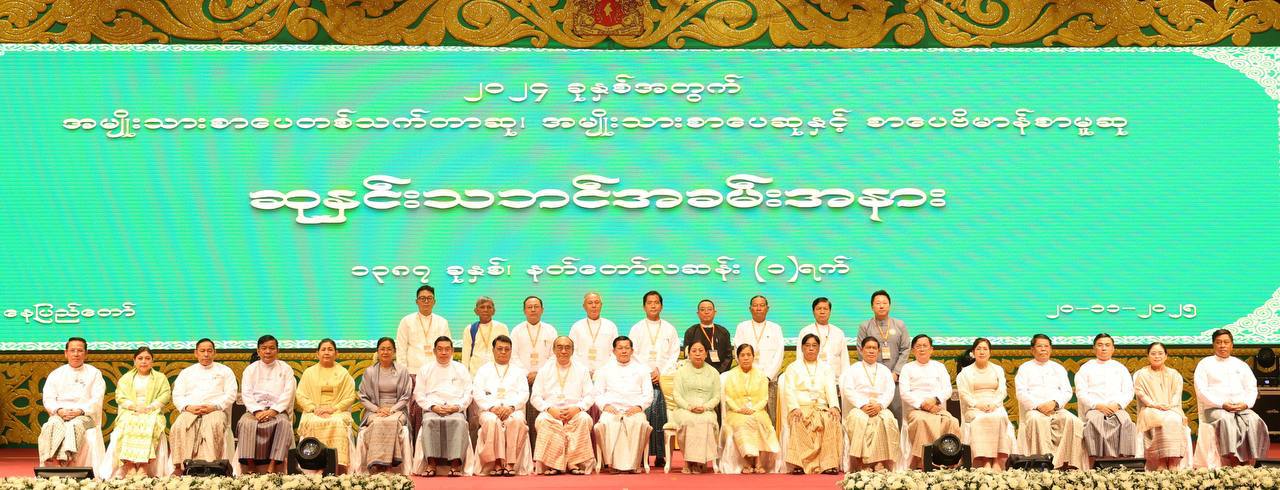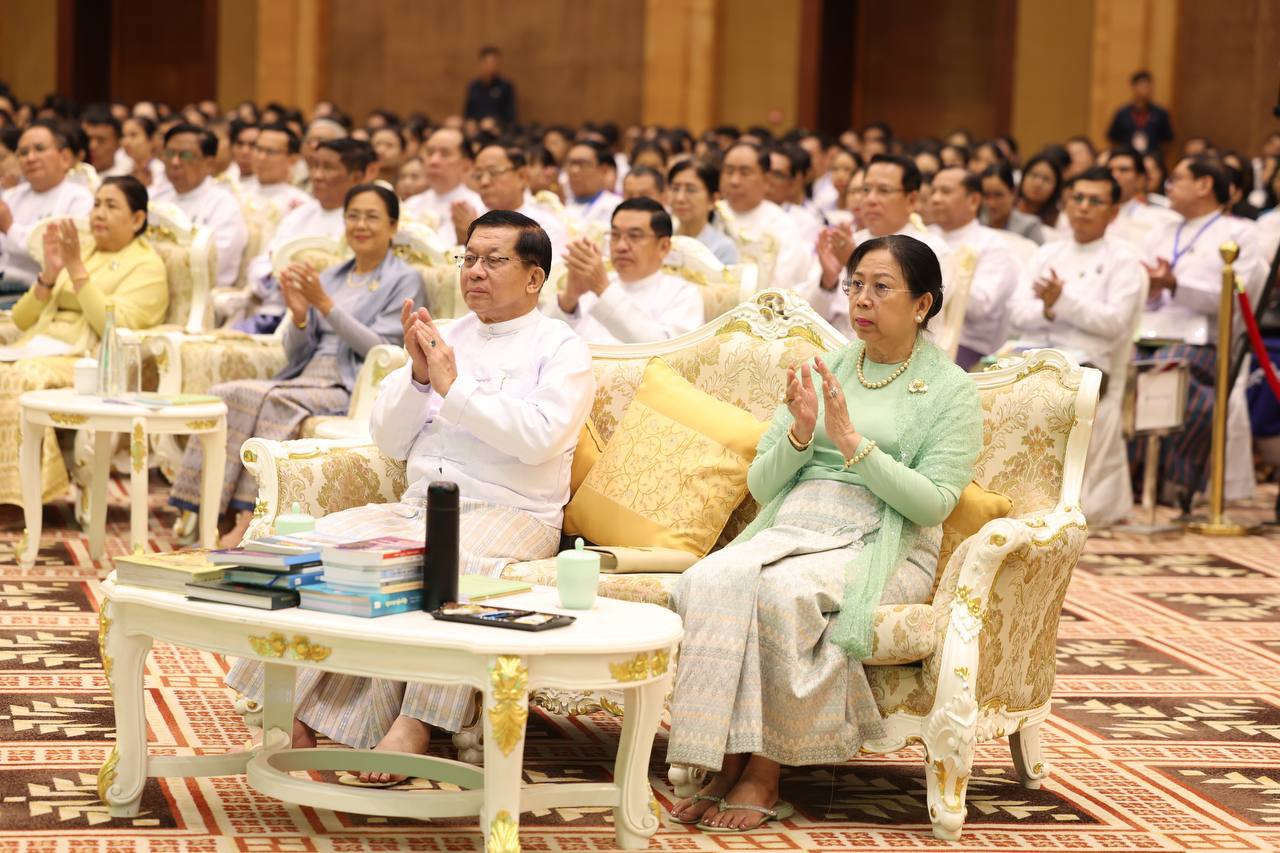CNI News
22 November 2025
The upcoming election will be a turning point for the nation, according to Senior General Min Aung Hlaing, Chairman of the State Security and Peace Commission.
He made the remarks during the 2024 National Lifetime Literary Award, National Literary Award, and Sarpay Beikman Manuscript Award Ceremony held on November 20, 2025.
Senior General Min Aung Hlaing said: “While the government is striving to ensure political stability and to successfully organize elections in an orderly manner, the public, too, must take part in this election — a turning point for the country — as a national duty. Citizens should maintain unity, patience, and work together toward a better future.”
He stated that the elections would be held phase by phase, and townships unable to participate for various reasons would have elections conducted later when possible. As the election period approaches, maintaining national peace and stability becomes increasingly important, he added.

Senior General Min Aung Hlaing further said: “By prioritizing national interests and implementing a genuine, disciplined multi-party democratic system, the collective development of the Union, domestic peace, and the sustained socio-economic advancement of the people can be achieved. Public participation is crucial for the success of general elections under a multi-party democratic system. Our people must cultivate good democratic habits, acquire knowledge, and develop modern awareness through literature and education.”
In Myanmar, Phase 1 of the election will be held on December 28, 2025, in 102 townships. Phase 2 will be conducted on January 11, 2026, in 100 townships, followed by Phase 3 in the last week of January 2026.

Political observers note that in the current electoral landscape, the Union Solidarity and Development Party (USDP) faces no strong competitors, giving the party a significant advantage in forming the next government if it wins the election.
Therefore, they argue that if the next government continues with the current structure and policies, major changes in the country are unlikely.
Analysts further point out that to create meaningful change — including resolving the ongoing political crisis, armed conflicts, and international economic sanctions, as well as improving socio-economic conditions — the post-election government must consider forming a Government of National Unity.




